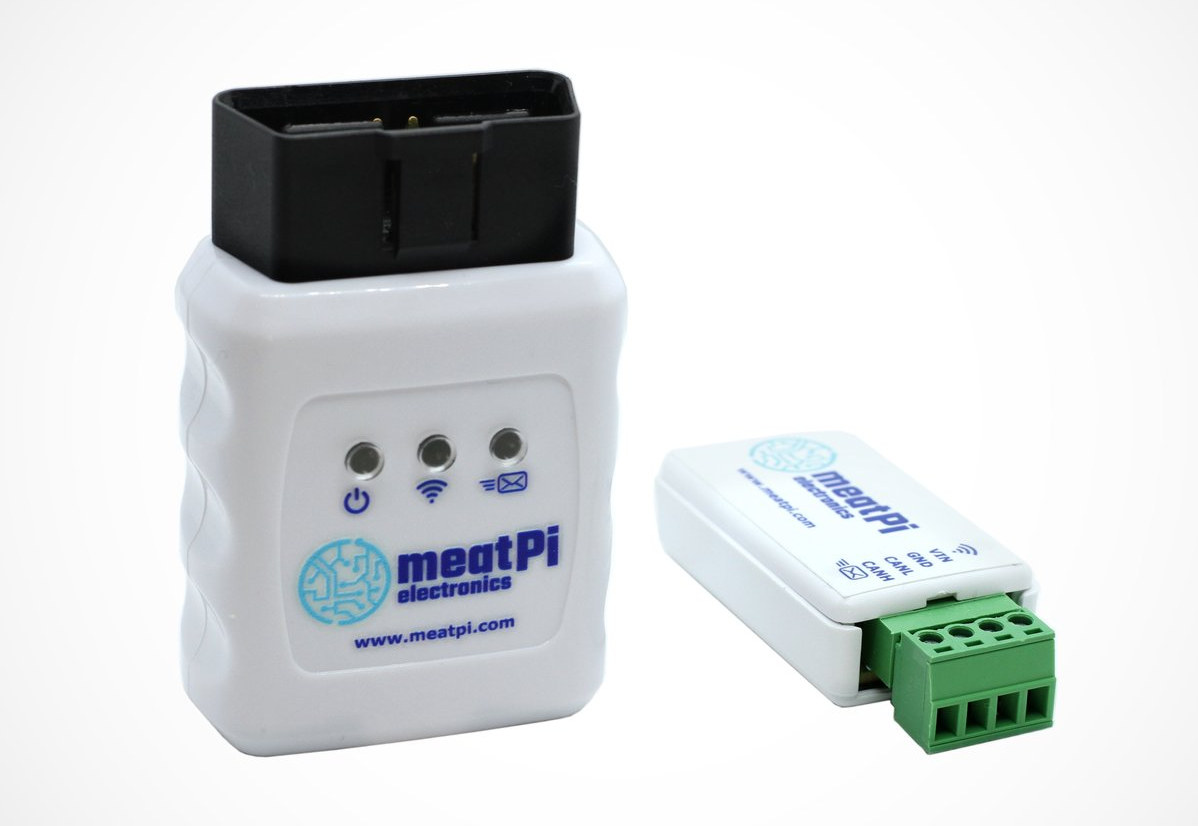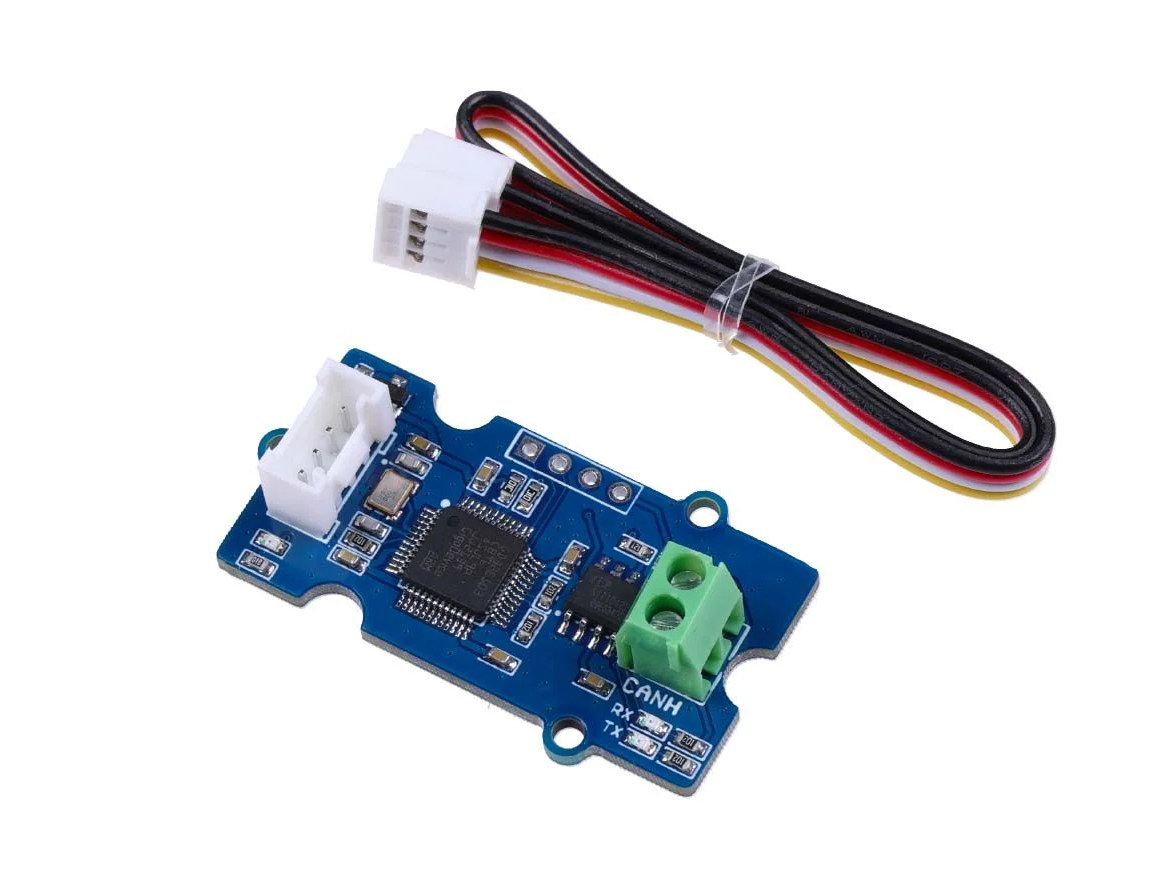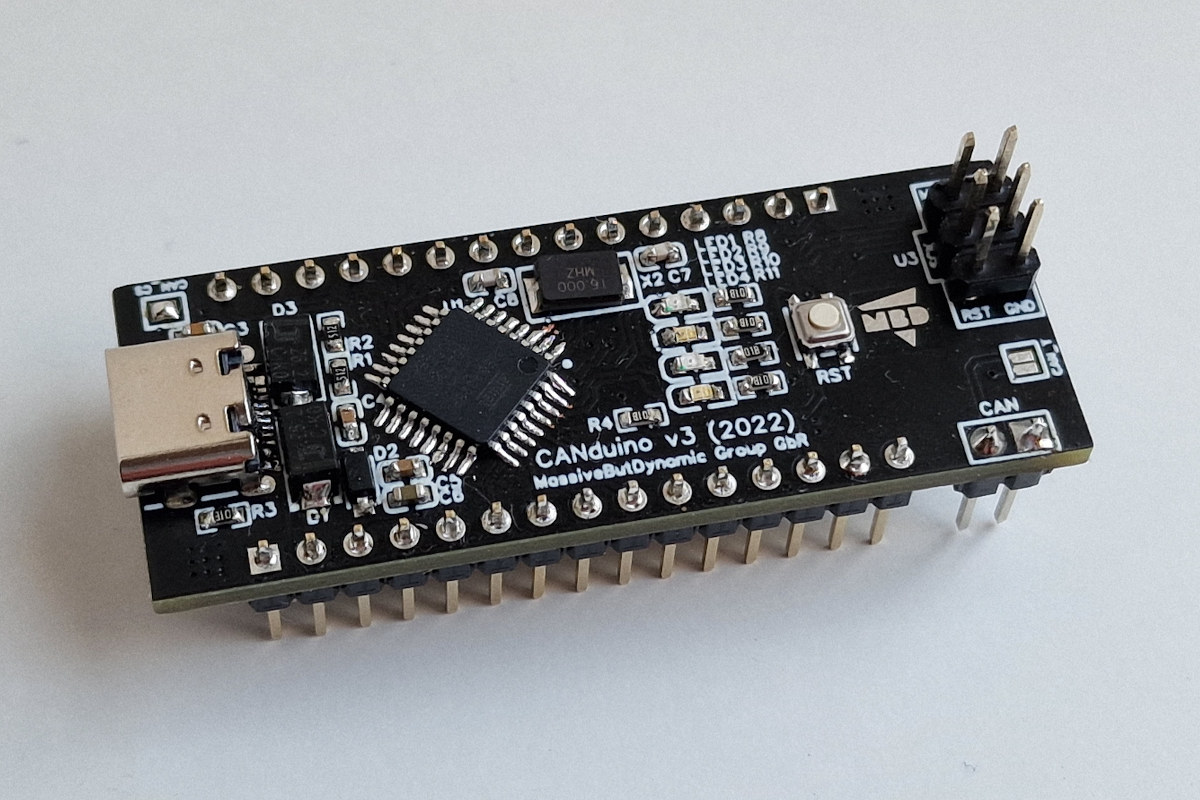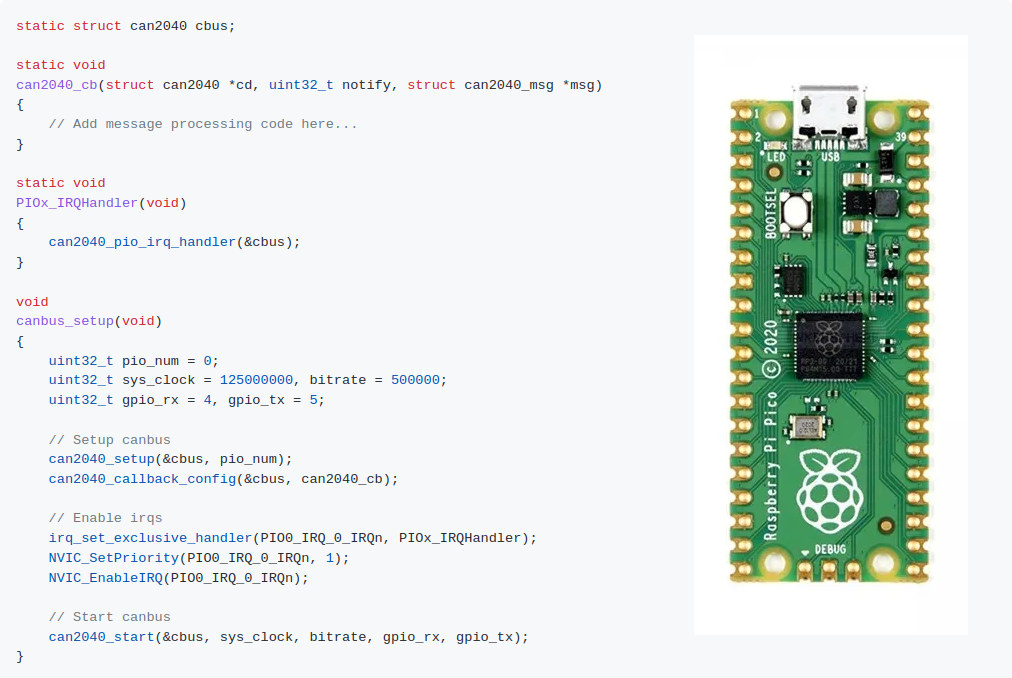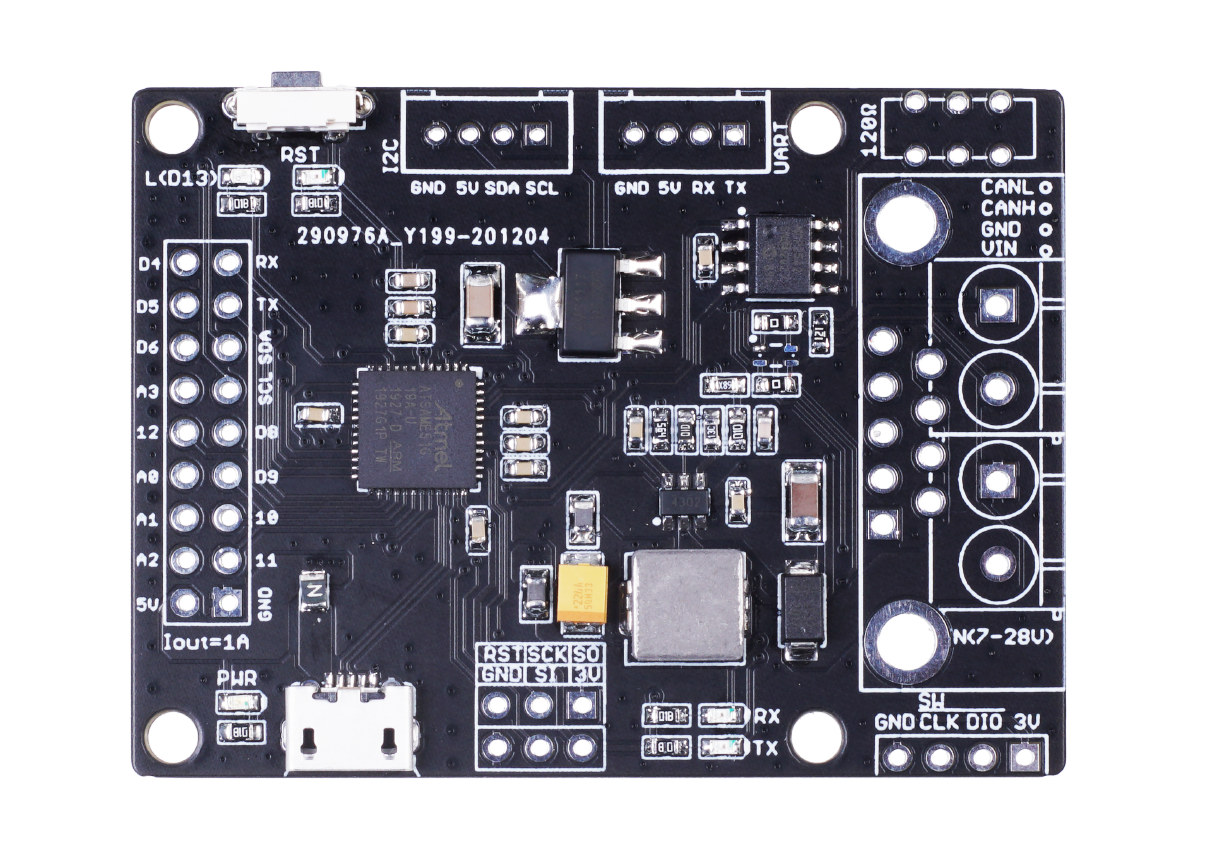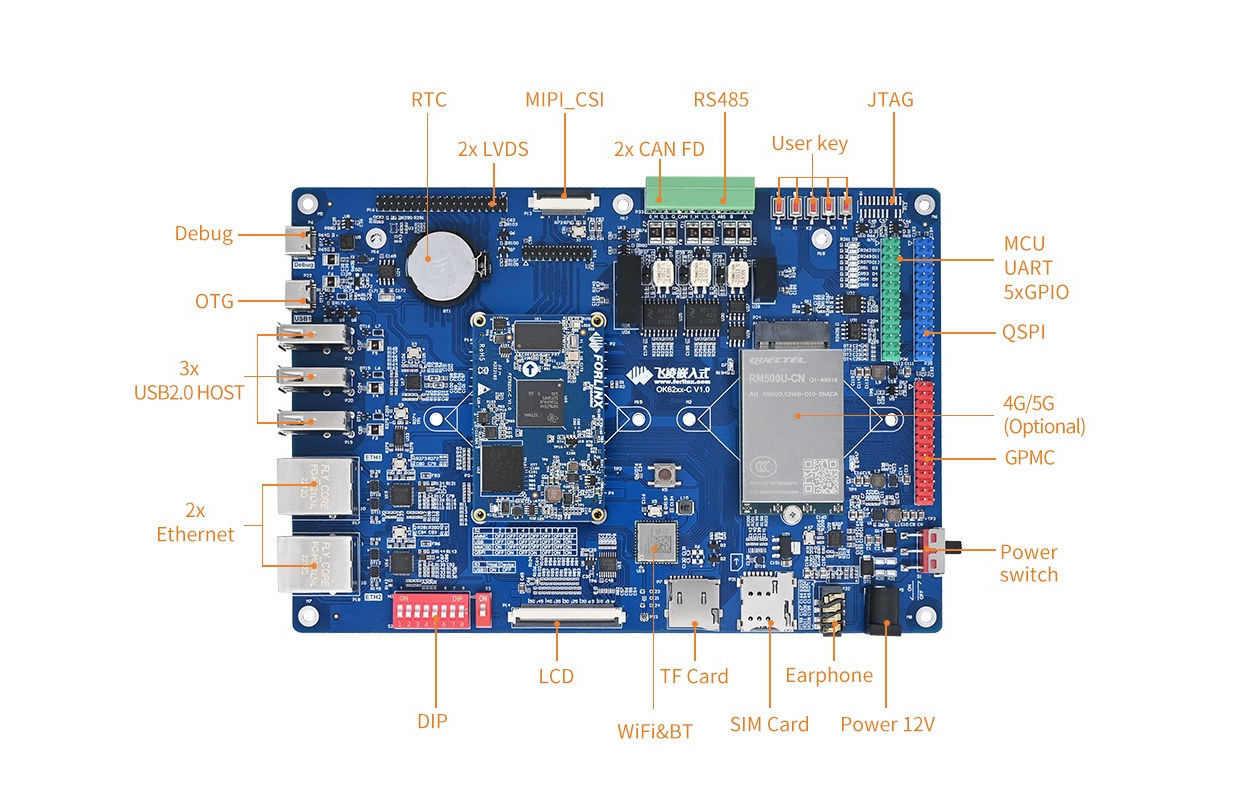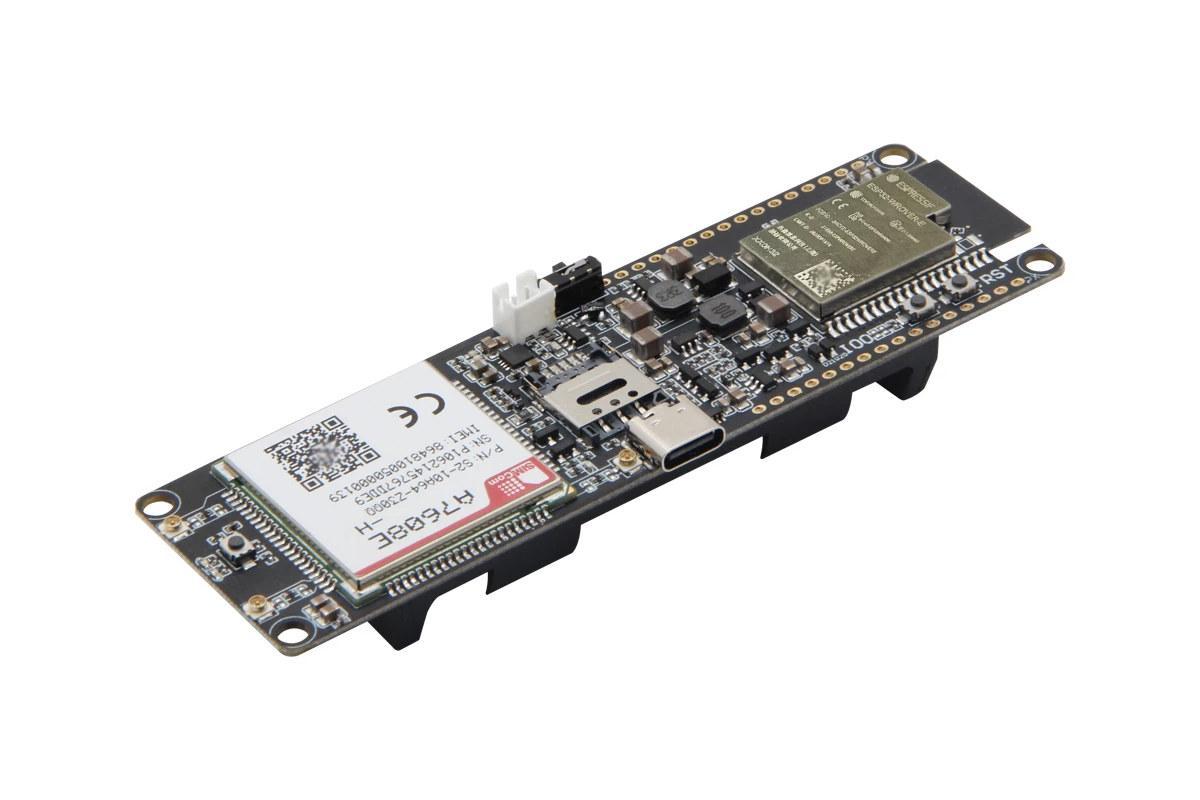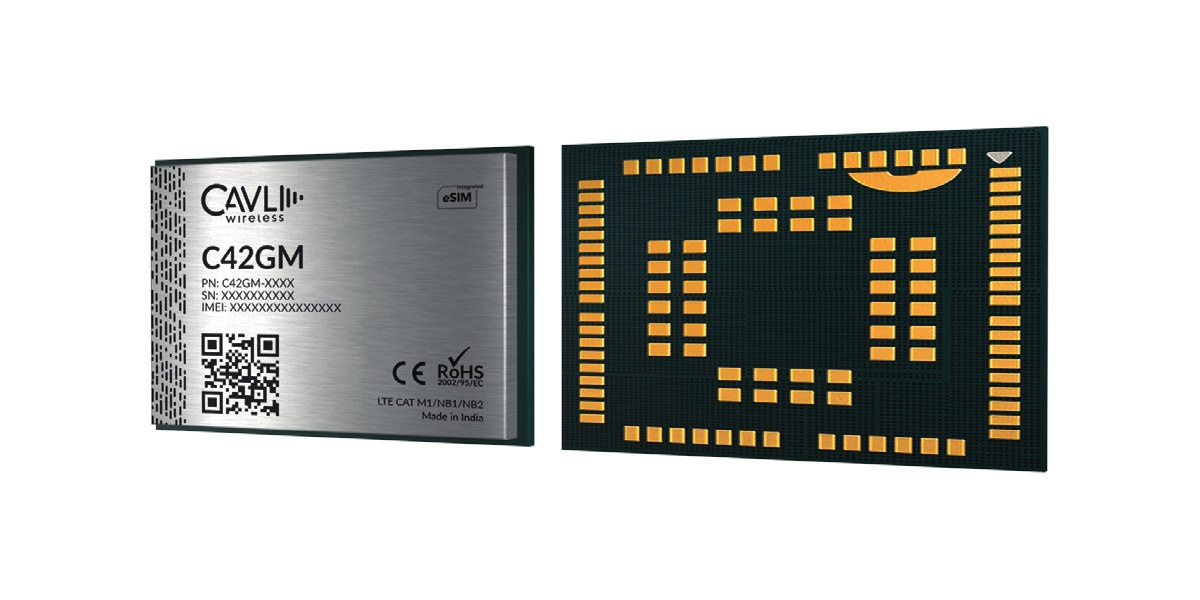WiCAN is an ESP32-C3 CAN bus adapter that works over USB, Wi-Fi, and Bluetooth LE, and designed for car hacking and general CAN bus development. The device is available in USB-CAN and OBD-II form factors and comes with firmware that works with RealDash to create nice-looking dashboards with the data. RealDash can be installed on Android, iOS, and Windows 10 operating systems. WiCAN specifications: Wireless module – ESP32-C3-MINI-1 with ESP32-C3 RISC-V microcontroller with 2.4GHz WiFI 4 and Bluetooth 5.0 connectivity, 4 MB flash, PCB antenna CAN 2.0 A/B interface up to 1 Mbps Host interface WiCAN-OBD – OBD-II connector WiCAN-USB – Mini USB port for USB-to-UART up to 6 Mbps Power Supply WiCAN-ODB – 7.5V to 16V (Vbat) WiCAN-USB – 7.5V to 36V via screw-terminal connector Power Consumption – <= 1 mA in battery-saving mode The CAN Bus adapter also supports firmware updates over WiFi, and can be used either […]
$4.9 CAN bus module features GD32E103 Cortex-M4 microcontroller
Seeed Studio has introduced a new CAN Bus Grove module based on 120 MHz Gigadevice GD32E103 Arm Cortex-M4+ microcontroller with support for CAN FD at up to 5Mbps and controlled by AT command over a serial interface. The new module appears to be a drop-in replacement for the company’s $19.90 Serial CAN-BUS Grove module based on Microchip MCP2551 and MCP2515, and the main benefit of the new GD32E103 module is that it is much more cost-effective going for only $4.90 including shipping. GD32E103 CAN BUS Grove module specifications: MCU – Gigadevice GD32E103 Arm Cortex-M4F microcontroller @ up to 120 MHz with 64KB to 128KB flash, 20KB to 32KB SRAM CAN Bus – 2-pin terminal block with CAN FD up to 5 Mbps Host connection – 4-pin Grove connector with UART up to 115,200 bps (default 9,600 bps) Misc – Tx and Rx LEDs Operating voltage – 3.3V Dimensions – 40 […]
CANDuino v3 – A Microchip ATmega168PA board with CAN bus, Arduino Nano form factor
CANduino v3 is the third revision of MassiveButDynamic’s CAN bus board with Arduino Nano form factor based on Microchip ATmega168PA 8-bit AVR microcontroller, Microchip MCP2515 CAN controller with an SPI interface, and Microchip MCP2551 CAN transceiver suitable for 12V and 24V systems. The CANDuino v3 board is now slightly narrower in order to give access to two rows on each side when installed on a breadboard, comes with a USB Type-C port to reduce the number of cables needed, and the CAN bus function can be deactivated via a jumper in order to use the CANduino as a normal Arduino Nano. CANDuino v3 specifications: MCU – Microchip ATmega168PA 8-bit AVR microcontroller @ up to 16 MHz with 16KB flash, 512 bytes EEPROM, 1 KB SRAM CAN Bus CAN L/H header and CAN bus termination Microchip MCP2515 CAN controller connected to the AVR microcontroller over SPI. Supports CAN V2.0B at 1 […]
can2040 project adds software CAN bus to Raspberry Pi RP2040 microcontroller
The can2040 project is a software CAN bus implementation for the Raspberry Pi RP2040 microcontroller that leverages programmable I/Os (PIO) to achieve reading and writing CAN 2.0B data frames at rates up to 1Mbit per second. Kevin O’Connor, the developer of the project, further explains the implementation uses only one of the two RP2040 PIO hardware blocks, so it is possible for a single Raspberry Pi RP2040 chip to have two separate CAN bus interfaces. Some processing also happens on one of the Arm Cortex-M0+ cores of the microcontroller with the processing time dependent on the amount of bus traffic, and a fully saturated CAN bus at the fastest supported rate of 1Mbit/s may use up to around 30% of that core when clocked at 125MHz, so that should still leave plenty of room for other tasks that may run on the system. I could not find any information about […]
CANBed M4 SAM E51 development board features MCP2542FD CAN transceiver
CANBed M4 development board based on Microchip SAM E51 Cortex-M4 microcontroller and MCP2542FD CAN transceiver provides a more powerful alternative to the CANBed RP2040 with a Raspberry Pi dual-core Cortex-M0+ microcontroller introduced last year. The board supports both CAN 2.0 and CAN FD with a 4-pin terminal block or a DB-9 connector, and offers expansion capabilities though two Grove connectors, and an 18-pin IO header. CANBed M4 specifications: MCU – Microchip ATSAME51G19A Arm Cortex M4 core @ up to 120 MHz with 512KB flash, 192KB RAM CAN Microchip MCP2542FD CAN transceiver with support for CAN 2.0 and CAN FD up to 2+ Mbps Input interface – DB-9 connector or terminal block 120 Ohm terminal resistor USB – 1x Micro USB port for programming Expansion I2C Grove connector UART Grove connector SPI header 18-pin I/O header with up to 12x GPIOs, UART, I2C, 4x analog inputs, 5V, and GND Misc – […]
Texas Instruments AM6254 powered industrial SBC features dual GbE, CAN Bus, RS485, optional 4G/5G cellular networking
Texas Instruments Sitara AM623 and AM625 Arm Cortex-A53 AIoT processors were just introduced last month, but Forlinx has already introduced the OK6254-C SBC powered by the Sitara AM6254 quad-core processor with up to 2GB DDR4, and an 8GB eMMC flash. The board features two Gigabit Ethernet ports, CAN FD and RS485 interfaces, plus plenty of I/O headers, support for up to three displays via LVDS and parallel RGB interfaces, as well as optional support for 4G/5G cellular connectivity that makes it suitable for all sorts of industrial applications. Forlinx OK6254-C specifications: FET625x-C SoM SoC – Texas Instruments AM6254 quad-core Cortex-A53 processor @ 1.4GHz with Cortex-M4F real-time core @ 400 MHz, Imagination AXE1-16M GPU @ 500MHz with OpenGL 3.x/2.0/1.1 + Extensions, and Vulkan 1.2 support; Single (AM6251) and dual-core (AM6252) modules are also available System Memory – 1GB (default) or 2GB DDR4-1600 Storage – 8GB eMMC flash 4x 80-pin board-to-board […]
ESP32 board with 150Mbps 4G LTE modem also supports RS485, CAN Bus, and relay expansion
LILYGO has designed another ESP32 board with a 4G LTE modem with the LILYGO T-A7608E-H & T-A7608SA-H variants equipped with respectively SIMCom A7608SA-H for South America, New Zealand, and Australia, and SIMCom A7608E-H for the EMEA, South Korean, and Thai markets, both delivering up to 150 Mbps download and 50 Mbps upload speeds. The board also supports GPS, includes a 18650 battery holder, and features I/O expansion headers that support an add-on board with RS485 and CAN bus interfaces, in a way similar to the company’s earlier TTGO T-CAN485 board with ESP32, but no cellular connectivity. LILYGO T-A7068E-H/T-A7608SA-H board specifications: Wireless Connectivity WiFi & Bluetooth – ESP32-WROVER-E module based on ESP32 dual-core processor @ 240 MHz with 4MB flash, 8MB PSRAM, 2.4 GHz WiFi 4 and Bluetooth 4.2/5.x connectivity, PCB antenna Cellular connectivity Data transfer speeds 4G LTE – Up to 150 Mbps downlink, up to 50Mbps uplink 3G HSPA+ […]
Cavli Wireless C42GM module offers cellular IoT and Sigfox connectivity, optional GNSS and CAN Bus
Selecting an LPWAN IoT module usually means selecting a particular LPWAN standard, but Cavli Wireless C42GM global IoT module combines LTE Cat M1 and NB-IoT (NB1/NB2) cellular IoT connectivity with Sigfox for “use cases that need the hybrid LPWAN approach”. The module also comes with optional GNSS for asset tracking and/or time synchronization and there’s also a variant that adds CAN FD wired communication. The C42GM module can also be fitted with an eSIM (embedded SIM) pre-loaded global connectivity. C42GM module specifications: LPWAN Cellular (NB-IoT and eMTC) Bands Supported – LTE Bands: B1/B2/B3/B4/B5/B8/B12/ B13/B18/B19/B20/B25/B26/B28/B66 3GPP Release: LTE 3GPP E-UTRA Release 13 CAT M1/NB1/NB2 (Upgradable to Release 14) Download & Uplink Speed LTE Cat M1 – 1119Kbps (UL), 588Kbps (DL) NB1 – 60Kbps (UL), 20Kbps (DL) NB2 – 158.5Kbps (UL), 127Kbps (DL) Optional eSIM Optional Sigfox GNSS – GPS, GLONASS, Beidou I/Os – 1x USB2.0, 2x UART, 1x USIM, 9x GPIO, […]


